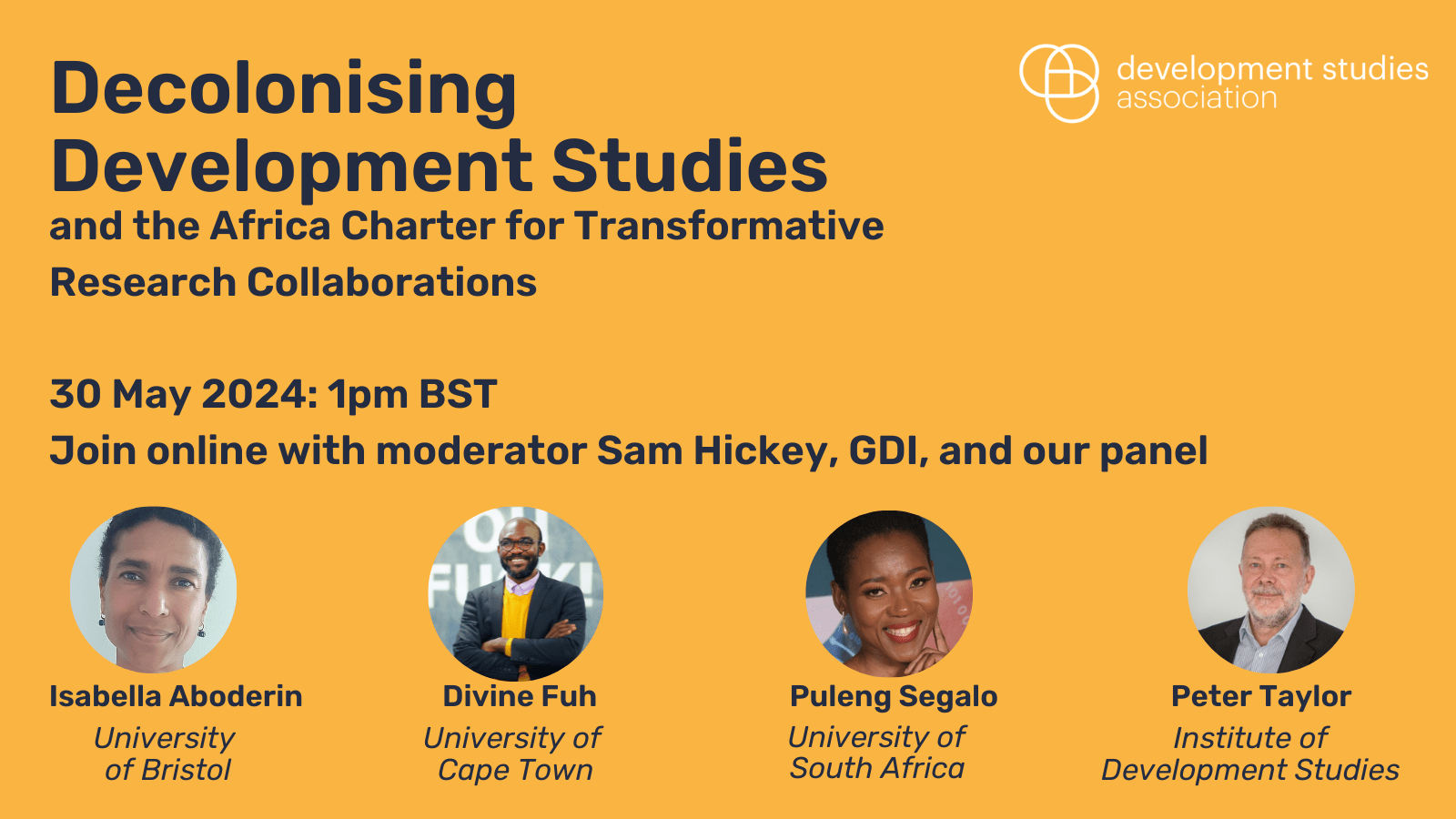
- This event has passed.
Decolonising Development Studies
30 May, 2024 @ 1:00 pm - 2:00 pm UTC+0

Decolonising Development Studies and the Africa Charter for Transformative Research Collaborations
Webinar time and date: 30th May 2024, 13:00 – 14:00 (British Summer Time)
Venue: Online (Register via Zoom)
Chair: Prof. Sam Hickey, University of Manchester
Speakers:
Prof. Puleng Segalo, University of South Africa
Prof. Isabella Aboderin, University of Bristol
Dr. Divine Fuh, University of Cape Town
Prof. Peter Taylor, Institute of Development Studies (IDS)
The webinar
Why we need to take a critical look at international research collaborations through a development studies lens
The calls to decolonise Development Studies are gaining momentum. Over the past decades, Development Studies thrived on the Eurocentric gaze that considered formerly colonised societies as a site of “fieldwork”. In contrast, the “Global North” has been considered a source of knowledge. This inequity manifests in how the African continent is often characterised and in the marginal role of Africa-based knowledge actors in shaping the discipline of Development Studies. While the discipline now includes more progressive critiques, there is a long way to go.
How the research ecosystem could become the most important arena for decolonising knowledge
Many actors within the global knowledge ecosystem are now focusing on deep structural inequalities that still shape the funding, implementation and evaluation of collaborative research. Existing “equitable partnership frameworks” provide a valuable starting point towards addressing the ethical, moral and administrative problems manifested in international research collaborations. However, most of these frameworks, and their many associated guidelines and principles, are generated in the Global North, and do not address the root causes of the problem that emanate from epistemic inequities and are sustained through colonially designed institutions and practices.
What issues the Africa Charter will aim to address
The Africa Charter for Transformative Research Collaboration is an Africa-centred framework for advancing a transformative mode of research collaborations to advance and uphold the continent’s place in the global production of scientific knowledge. The Charter contends that the power asymmetries in scientific knowledge production concerning Africa in Development Studies are multi-layered and include:
- Epistemic inequities
- The dominance of colonially imposed languages
- The unidirectional development gaze
- Inequalities in institutional resources and capabilities
- Inequities in the division of labour and resources.
The manifestations of these intertwined layers of inequities need more profound reflections and debate to redress the colonial legacy.
The DSA convenes this webinar to learn more about the Africa Charter, its relevance to the field of development studies and how the Charter can help us conceive and implement international research collaborations in a transformative manner.

